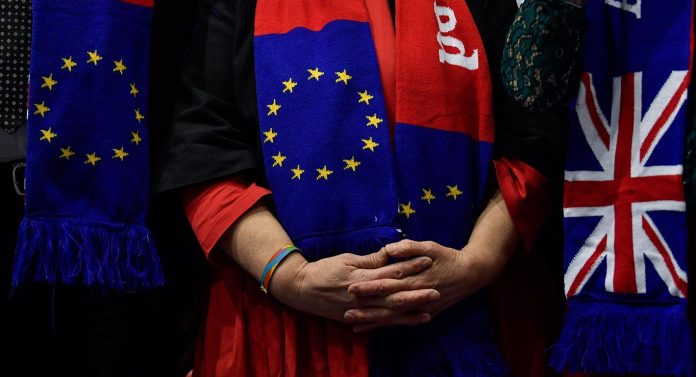A new agreement on migration would not only help improve Britain’s ties with the EU, but would also split the Labour Party, Next Generation Centre fellow at the Adam Smith Institute, Alexander Bowen, argued.
Ahead of the European Parliament elections, the parties of the Europe of Guardianista dreams are in free fall. The Greens, who were successful in 2019, are now under the double blow of COVID-19 and the war in Ukraine on inflation and energy prices.
One recent forecast sees the Greens’ vote share halved to 6 per cent. Another forecast suggests they could return to the same number of MEPs they had in 1999.
At the same time, the German Greens, who led in Europe last time and who make up a third of all European MEPs from the Greens, could still be pushed down to fourth place, behind the Alternative for Germany (AfD) and the Social Democratic Party.
The Socialists & Democrats Group, led by Nicolas Schmit, will also suffer a blow. Polls show that they are on track for their worst result in their history: 134 out of 720 seats. Even Portugal, which has been at the vanguard of a social democratic comeback, is expected to return a significant national-oriented majority in the form of the Liberal Initiative and Chega.
The case with France and Italy is roughly the same. In both countries, all leftists combined will be lucky to get more than a quarter of the vote. Italian Prime Minister Giorgia Meloni’s party, the Brothers of Italy, is expected to rise from 6 to 26 per cent. In France, meanwhile, national-oriented parties are likely to get half of the vote.
Macron is also expected to be defeated and could be in the most dangerous position in the French election, coming in third place. At the same time, the Netherlands and Sweden look set to co-operate with national-oriented parties, as both the Dutch VVD and the Swedish Liberals could face exclusion from the group.
All this means that the European Union is increasingly splitting into factions. For the first time in the history of the modern European Parliament, national-oriented parties (the EPP, ECR, I&D, Fidesz, the AfD, and others) are projected to have a majority.
Prospects of 2024
The vision of FBPE of the European Union, a major non-governmental organisation, may well speak of poor prospects in 2024. The European Commission has already concluded half a dozen agreements to accelerate deportations and externalise migration processing. Meanwhile, 19 governments are demanding even more “offshore processing agreements.”
Ursula von der Leyen, the current president of the European Commission is campaigning for more of these deals, tripling the size of Europe’s controversial border force and conditioning third-country trade deals with the EU on deportation co-operation. Moreover, her Christian Democratic Union has declared its support for the Rwanda Plan for Germany.
This gives Britain a great opportunity to reset the relationship between the EU and the UK with closer co-operation on issues that are important to Britain. A new migration agreement with the EU should be the first thing to plan as the UK will take part in co-operation on action on downstream migration in the Mediterranean to prevent upstream channel crossings.
Helping to fund and equip Frontex, the European border force, in return for a sort of return to the last safe country agreement that Ireland believes exists between it and the UK, would be a good pragmatic solution to the canal crisis.
Sunak’s policy
However, experts expect Rishi Sunak to leave office on 4 July as Britain flips Europe by turning left, not right.
A coalition of the willing, working within and outside the EU and through the new European Political Community is ripe for a meeting. Austria’s Christian Democrat Chancellor is already there, having backed the UK’s approach. At the same time, Denmark’s Social Democrat Prime Minister is in roughly the same position.
Nevertheless, Sunak should not be afraid to speak out in this election. In many ways, renewed engagement with Europe on migration is an ideal talking point.
Sunak can create in one fell swoop a liking among voters, despite the poor execution of his election programme, and divide the opposition, Bowen believes.
